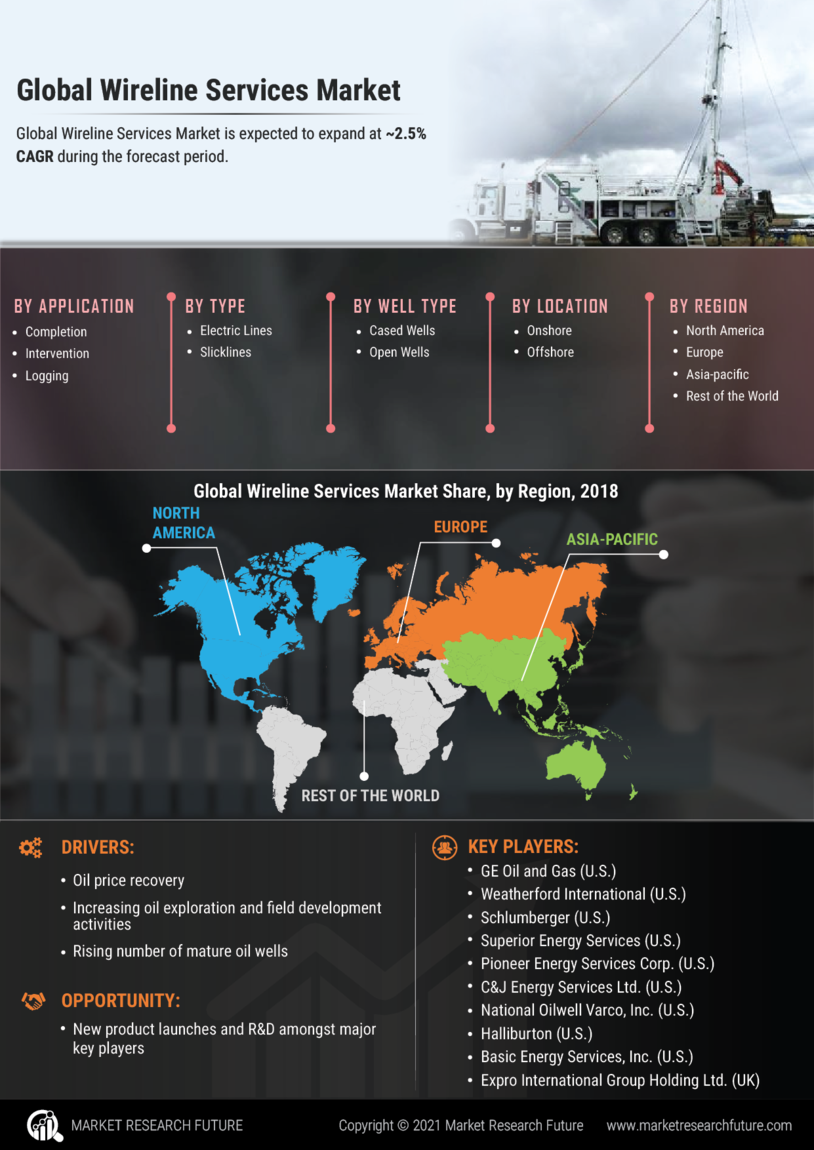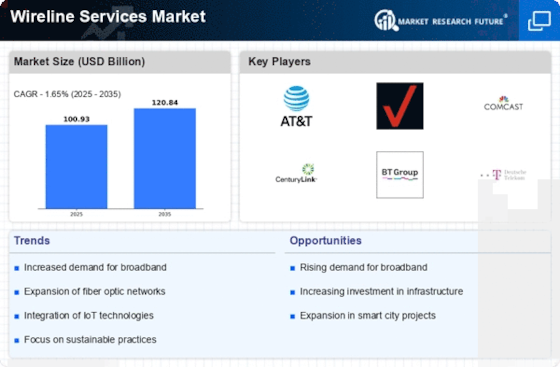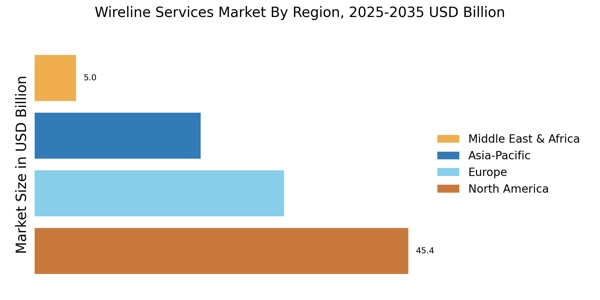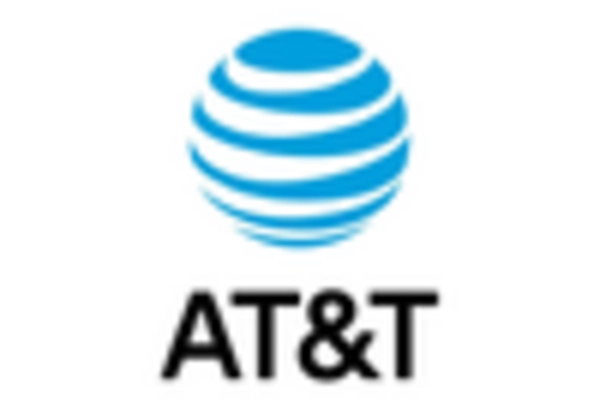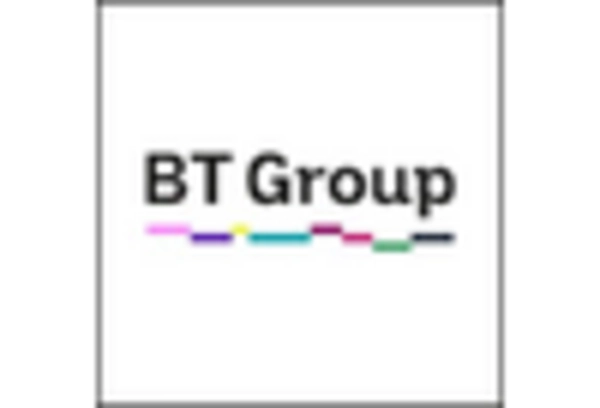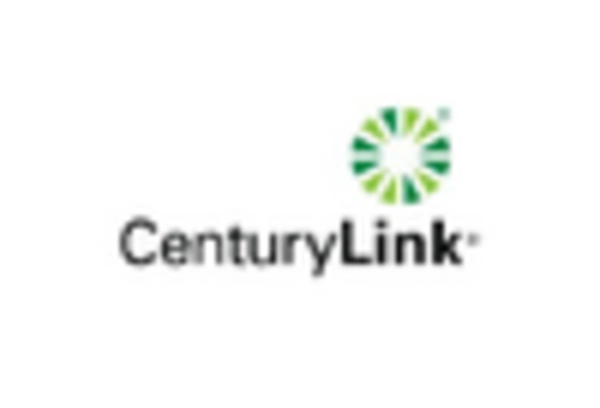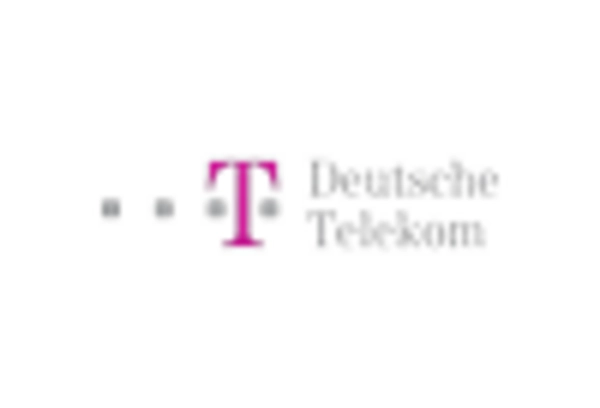Expansion of Smart Cities
The development of smart cities is poised to be a key driver in the Wireline Services Market. As urban areas evolve, the integration of advanced technologies into city infrastructure necessitates a reliable and high-capacity wireline network. This includes the deployment of IoT devices, smart traffic management systems, and enhanced public safety measures. According to recent estimates, investments in smart city projects are expected to reach trillions of dollars over the next decade. This creates a substantial opportunity for wireline service providers to offer tailored solutions that support the connectivity needs of these urban environments, thereby fostering growth within the Wireline Services Market.
Emergence of 5G Technology
The advent of 5G technology is anticipated to have a profound impact on the Wireline Services Market. While 5G is primarily associated with wireless communication, its deployment necessitates a robust wireline backbone to support the increased data traffic and connectivity demands. As 5G networks roll out, there is a corresponding need for enhanced fiber optic infrastructure to ensure seamless service delivery. Industry analysts project that the integration of 5G could lead to a 15% growth in wireline service revenues over the next few years. This intersection of wireline and wireless technologies presents a unique opportunity for service providers to innovate and expand their offerings within the Wireline Services Market.
Increased Focus on Cybersecurity
As the Wireline Services Market continues to expand, the emphasis on cybersecurity has become increasingly critical. With the rise in cyber threats, service providers are compelled to enhance their security measures to protect customer data and maintain trust. This has led to the integration of advanced security protocols within wireline services, which not only safeguards networks but also attracts customers seeking reliable and secure internet access. Recent surveys indicate that nearly 70% of consumers prioritize security when choosing a service provider. Consequently, the focus on cybersecurity is likely to drive innovation and investment in the Wireline Services Market.
Growing Demand for High-Speed Internet
The Wireline Services Market is experiencing a notable surge in demand for high-speed internet connectivity. As consumers increasingly rely on digital services for work, education, and entertainment, the need for robust wireline infrastructure becomes paramount. Recent data indicates that the number of broadband subscriptions has risen significantly, with a projected increase of 5% annually. This trend is driven by the proliferation of smart devices and the expansion of online content, necessitating faster and more reliable internet access. Consequently, service providers are investing heavily in upgrading their wireline networks to meet these demands, thereby enhancing their competitive edge in the Wireline Services Market.
Regulatory Support for Broadband Expansion
Regulatory frameworks are increasingly favoring the expansion of broadband services, which serves as a significant driver for the Wireline Services Market. Governments are recognizing the importance of universal internet access and are implementing policies to facilitate infrastructure development. For instance, various initiatives aim to provide funding for rural broadband projects, which could potentially increase wireline service penetration in underserved areas. Recent reports suggest that such regulatory support could lead to a 10% increase in broadband availability over the next five years. This favorable environment encourages investment in wireline technologies, thereby stimulating growth in the Wireline Services Market.
